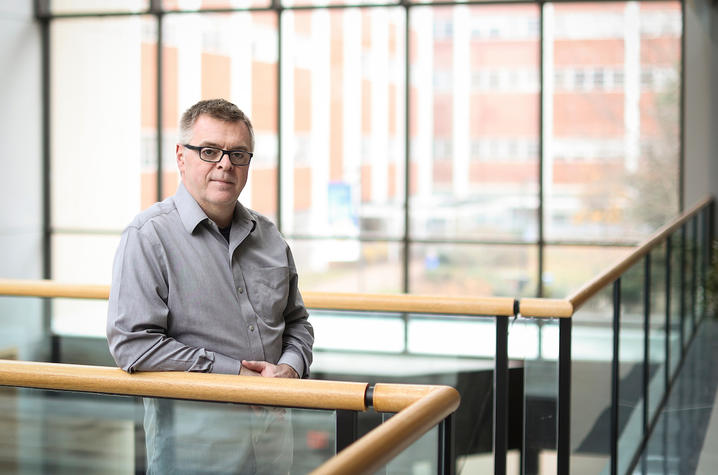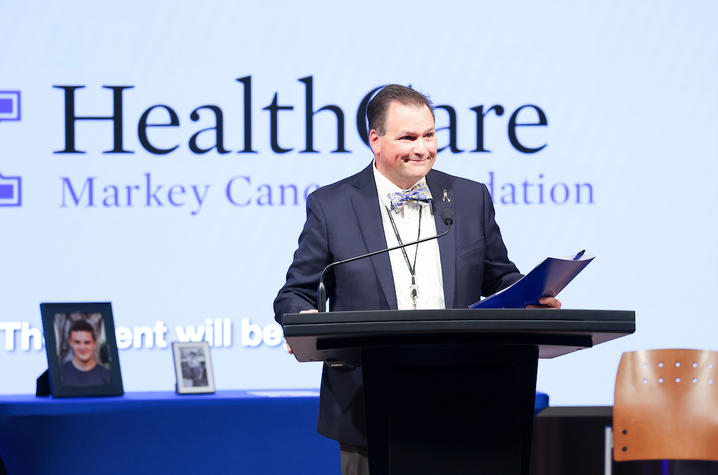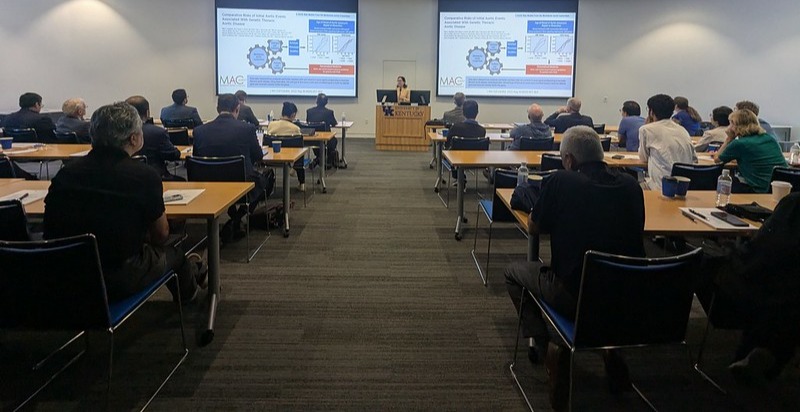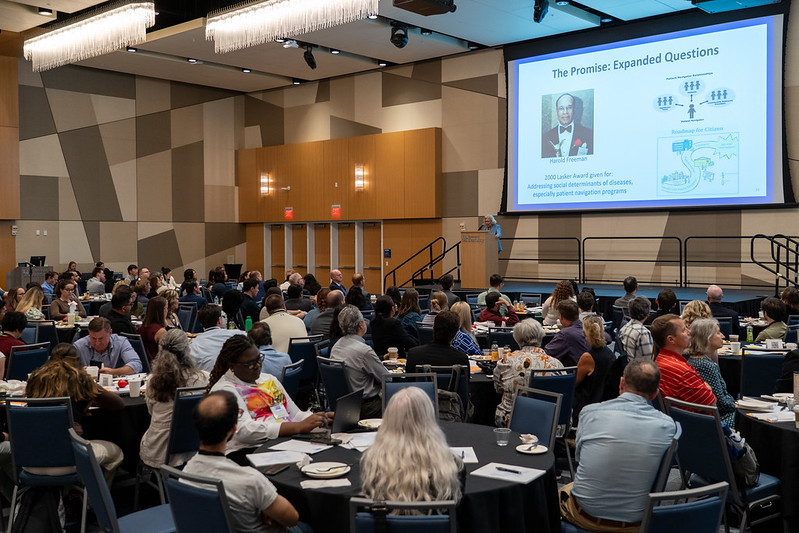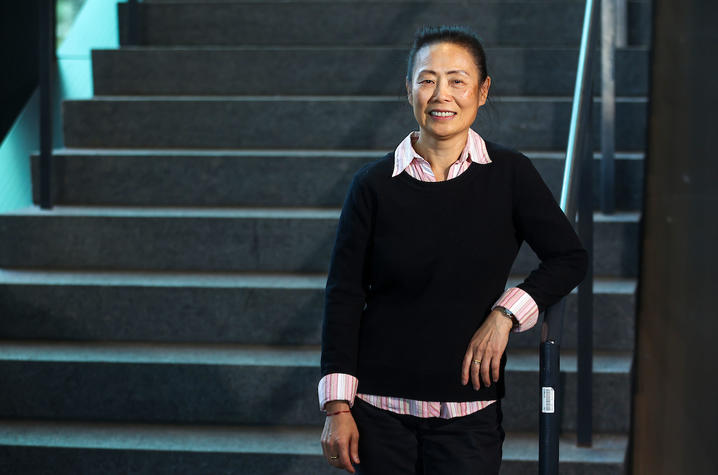News
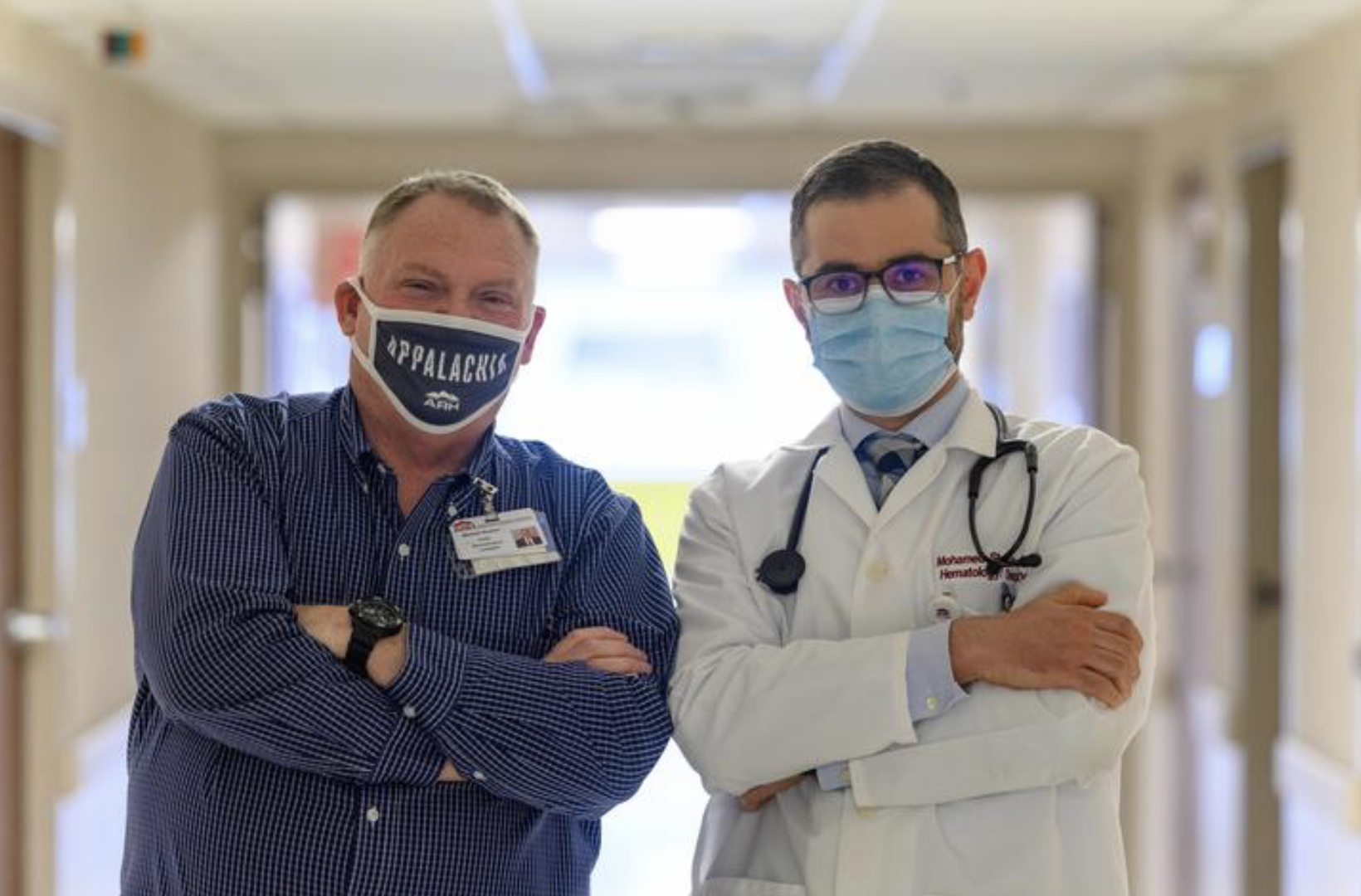
LEXINGTON, Ky. (Aug. 24, 2020) – Kidney stones are infamously painful. Even at their tiniest size, these mineral deposits can wreak havoc as they exit the kidneys, leading to the type of breathtaking pain that’s often compared to the experience of giving birth.
But for Middlesboro resident Michael Slusher, that pain turned out to be a wake-up call for something much more serious.
“I’m probably the only person who says, ‘Thank God for a kidney stone,’” he said. “Because it discovered my kidney cancer before it metastasized.”
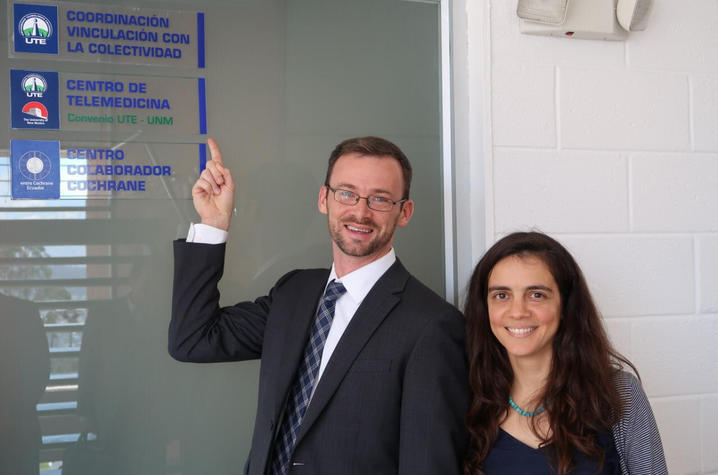
LEXINGTON, Ky. (Aug. 20, 2020) – By the time the pandemic forced many patients and providers into telemedicine, ophthalmologist Dr. Ana Bastos de Carvalho had been using it for years. As co-founder of the University of Kentucky’s Global Ophthalmology (UKGO) program, she has helped build and expand a statewide telemedicine eye screening program for diabetic patients in disadvantaged rural and urban communities.
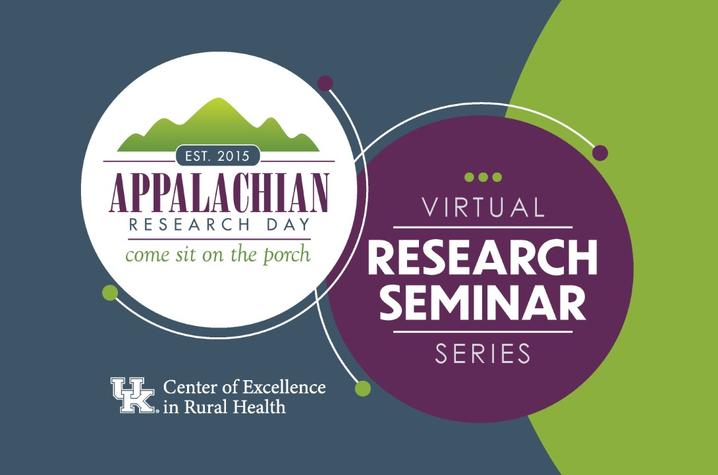
HAZARD, Ky. (Aug. 19, 2020) — The 6th Annual Appalachian Research Day (ARD): Come Sit on the Porch will be held as a virtual seminar series, beginning Sept. 16, 2020. ARD is an annual event hosted by the University of Kentucky Center of Excellence in Rural Health (CEHR) to share results of health research conducted with communities in Appalachia.“Disseminating health disparities research findings at the local level is something our Center is strongly committed to,” said Dr.
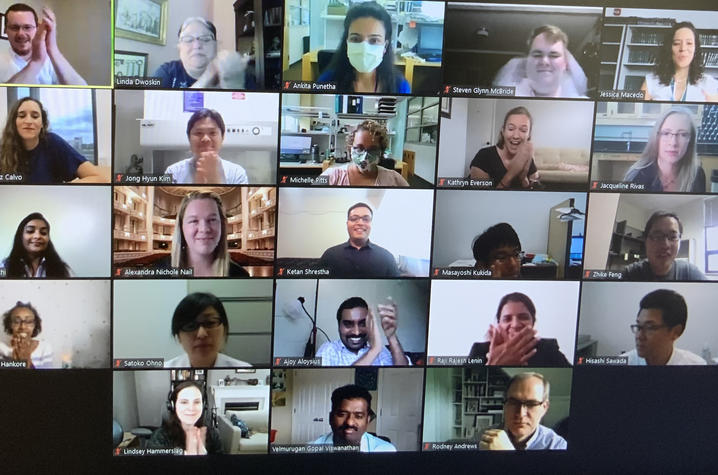
LEXINGTON, Ky. (Aug. 18, 2020) — The University of Kentucky Society of Postdoctoral Scholars (SOPS) hosted their first Research Pitch Competition where 19 postdocs and fellows showcased their research with one-minute elevator pitches.
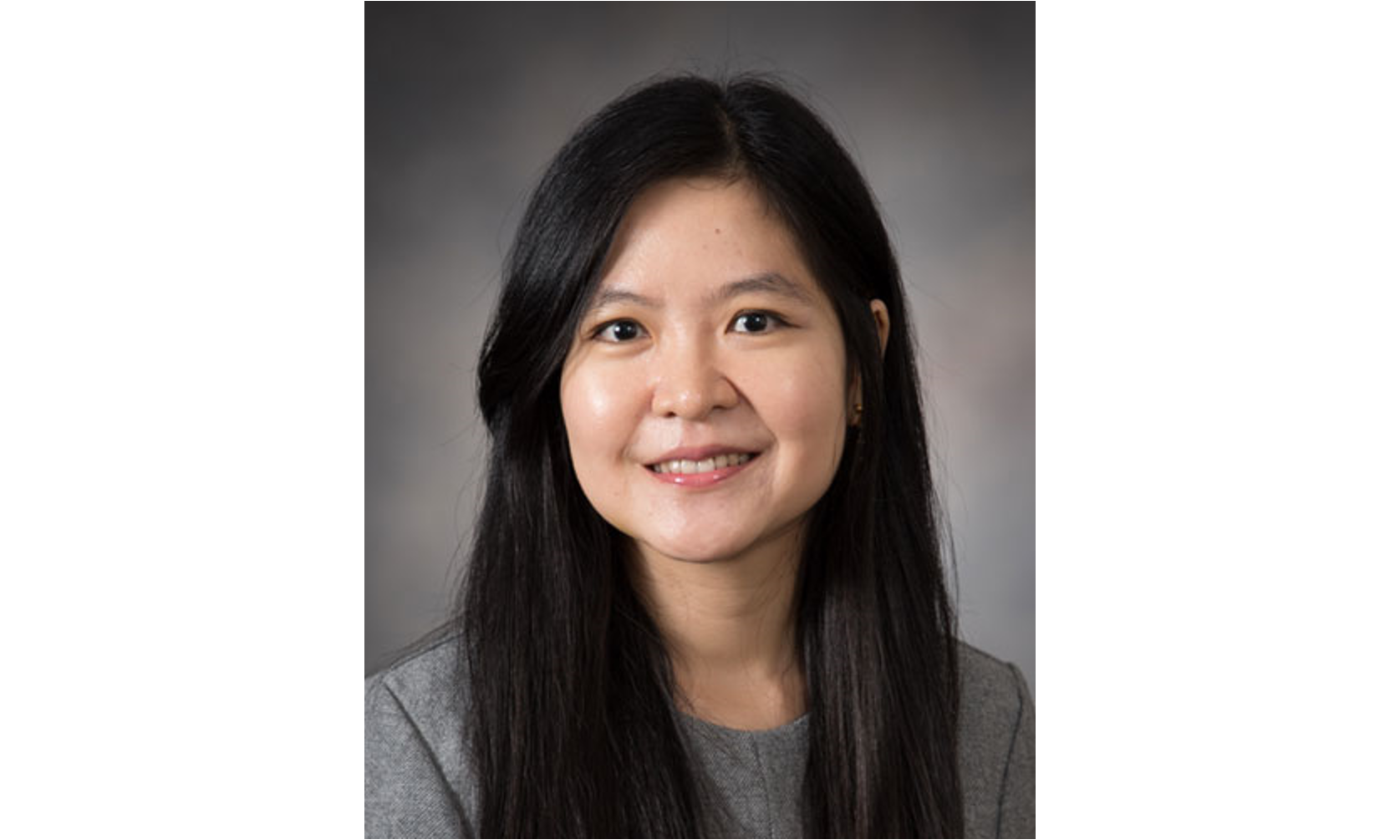
Cannabinoids have been widely used in medicines to control pain, nausea, and vomiting and to stimulate appetite, especially in cancer patients. As it is through effective research that we are able to understand and advance new options, the UK College of Medicine and Markey Cancer Center faculty are now looking to understand if there is a role for Cannabinoids in the treatment of a deadly cancer in men, prostate cancer.
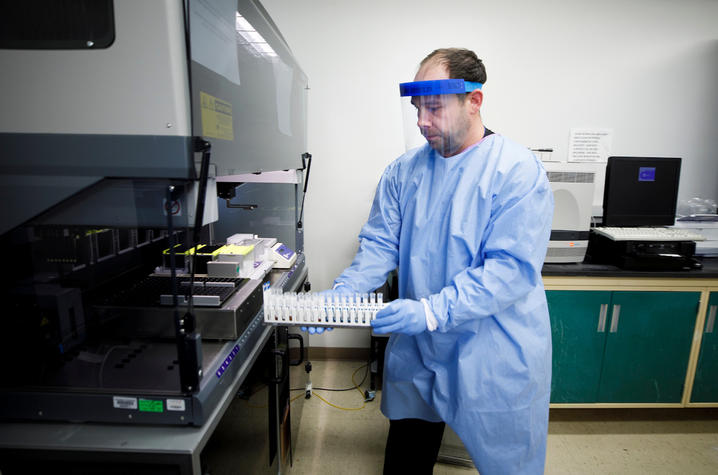
LEXINGTON, Ky. (April 10, 2020) — On and off campus, members of our UK community are working to ensure that the university can keep its promise to our state — to educate, serve, research and heal. That's why UKNow is launching this new "#TogetherUKY" series to thank some of the UK faculty and staff who are a representation of all our employees who are working hard in numerous areas and departments around our campus. We can't continue our mission without their commitment, resilience and collaborative spirit during this challenging time.
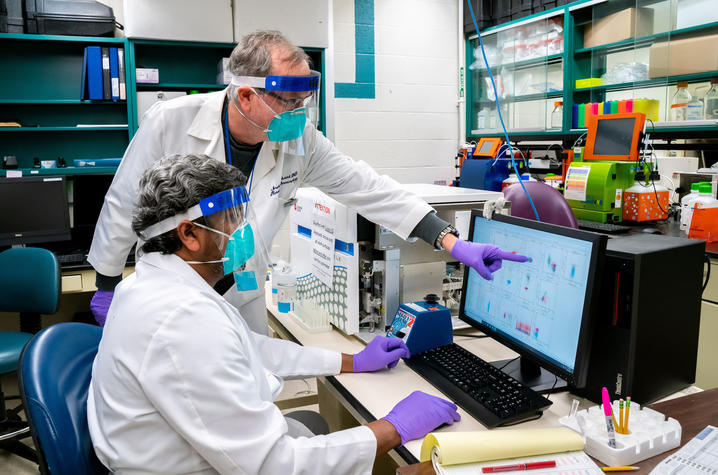
LEXINGTON, Ky. (Aug. 13, 2020) — PDS Biotechnology, a clinical stage immunotherapy company, has announced positive results from preclinical testing conducted at the University of Kentucky College of Medicine of its COVID-19 vaccine candidate, PDS0203.
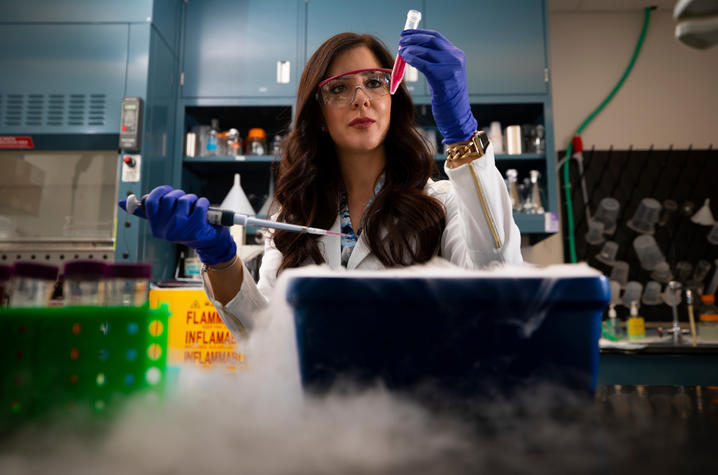

LEXINGTON, Ky. (Aug. 11, 2020) — With the morning sun rising in the sky at the University of Kentucky’s sprawling Spindletop Farm, Patrick Perry is in high spirits, smiling behind his reflective shades as his tractor roars to life. His student workers, UK seniors Chris Bankes and Tyler Miles, take Styrofoam float beds loaded with tiny seedlings of the plant Artemisia annua and attach them to a mechanical transplanter hitched to the tractor.
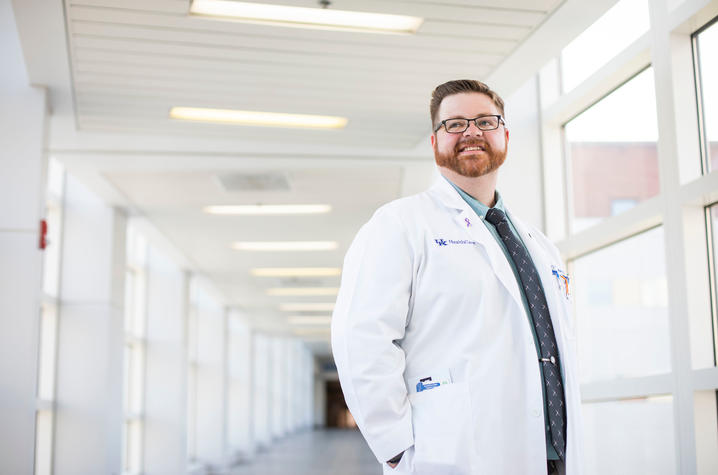
LEXINGTON, Ky. (Aug. 10, 2020) — Most of us have heard the phrase that some stress is good. Timothy Ainger, Ph.D., assistant professor in the University of Kentucky Department of Neurology, says the word ‘some’ is key. Ainger specializes in neuropsychology which is the brain-behavior relationship. He says it is true that a small to moderate amount of stress or pressure does help a person focus and perform at their best.
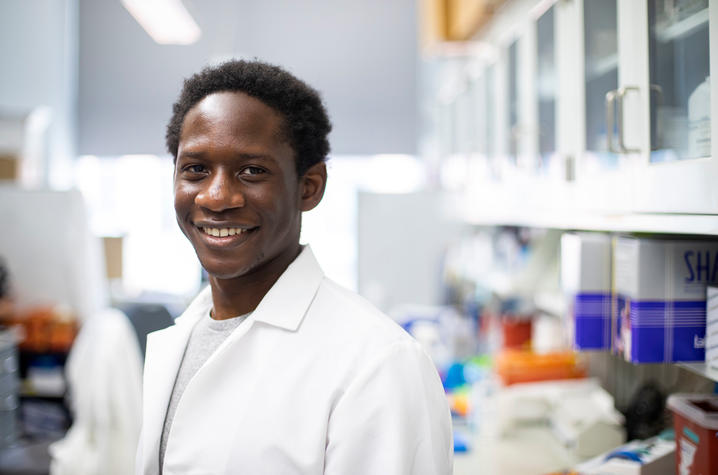
LEXINGTON, Ky. (Aug. 6, 2020) — For a couple of years now members of the University of Kentucky Spinal Cord and Brain Injury Research Center (SCoBIRC), in collaboration with UK College of Arts and Sciences, have been working to increase the representation of Black undergraduate students in neuroscience.
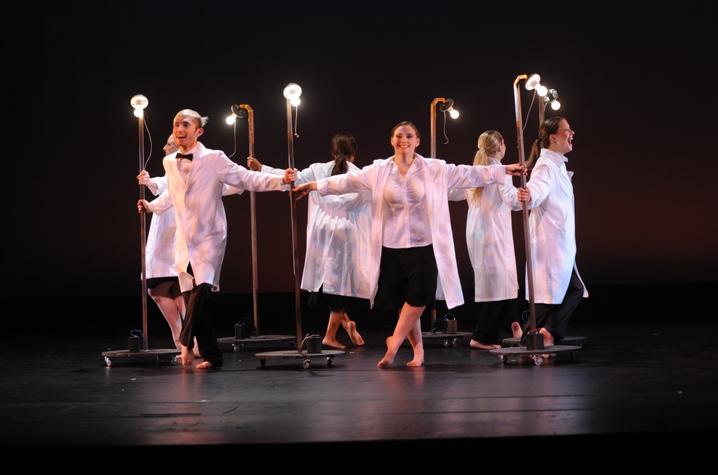
LEXINGTON, Ky. (Aug. 6, 2020) — The connection between art and medicine has been a focus of medical education institutions for decades.
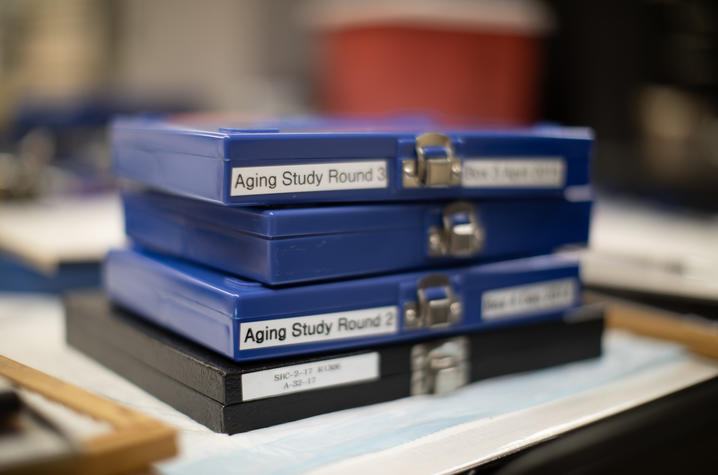
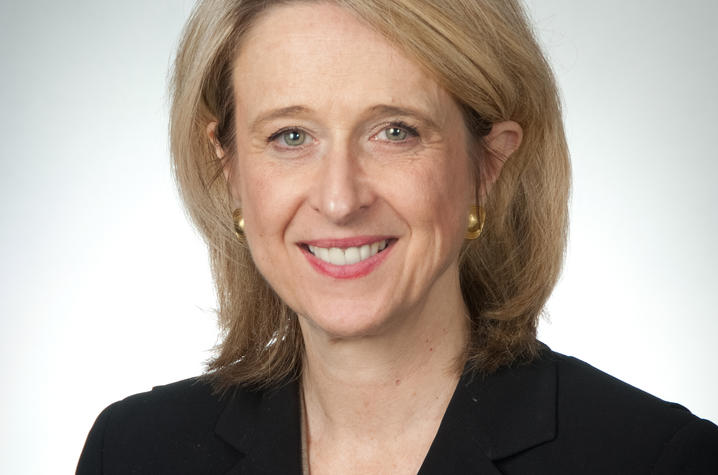
LEXINGTON, Ky. (Aug. 5, 2020) — Dr. Gretchen Wells, director of the UK HealthCare (UKHC) Women's Heart Program at the Gill Heart & Vascular Institute, has been selected to receive the American Heart Association's Council on Clinical Cardiology 2020 Women in Cardiology Mentoring Award.
The award is designed to recognize individuals who have an outstanding record of effectively mentoring women cardiologists and underscores the importance of mentoring in the professional development of women.
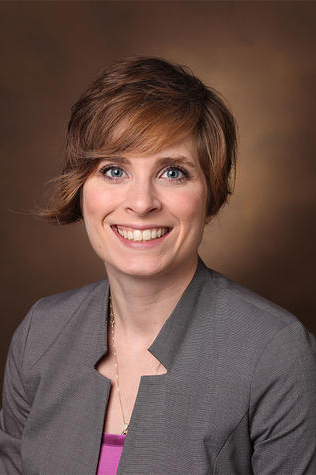
LEXINGTON, Ky. (Aug. 4, 2020) – The University of Kentucky Markey Cancer Center has announced that Krystle Kuhs, Ph.D., M.P.H., will serve as co-leader of its Cancer Prevention and Control Research Program. Kuhs will co-lead the program with University of Kentucky College of Public Health Associate Professor Jerod Stapleton, Ph.D., who joined the university in November 2019.

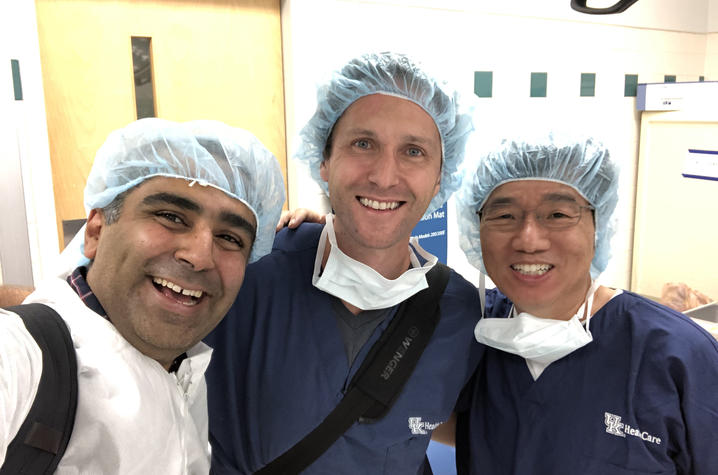
Lexington, Ky. (July 31, 2020) – During a routine surgery that combined their specialties, Dr. Mark Fritz, a laryngologist in the University of Kentucky Department of Otolaryngology, and Dr.
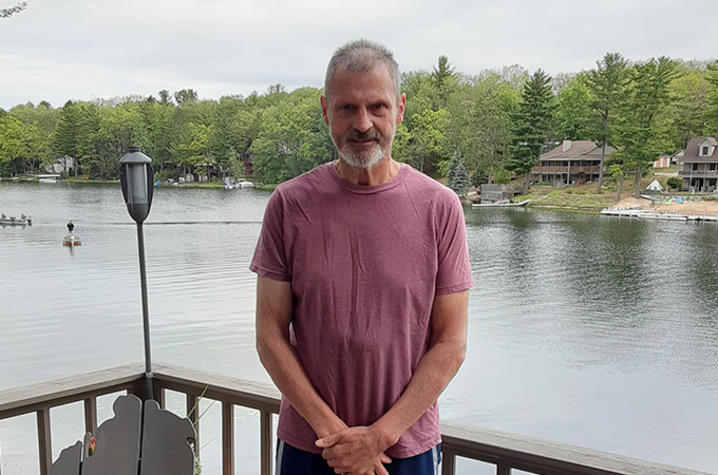
LEXINGTON, Ky. (July 31, 2020) – During his chemotherapy treatments, Scott Storey got used to avoiding cold drinks and foods. The regimen he was on, FOLFOX, includes the drug oxaliplatin, which is known to cause “cold dysesthesia” in some patients. It’s a hypersensitivity to the presence of cold that can trigger side effects such as peripheral neuropathy, jaw spasms, shortness of breath and more.
This peculiar fact – and a serendipitous meeting with a stranger – proved to be a lifeline for the retired Air Force veteran.
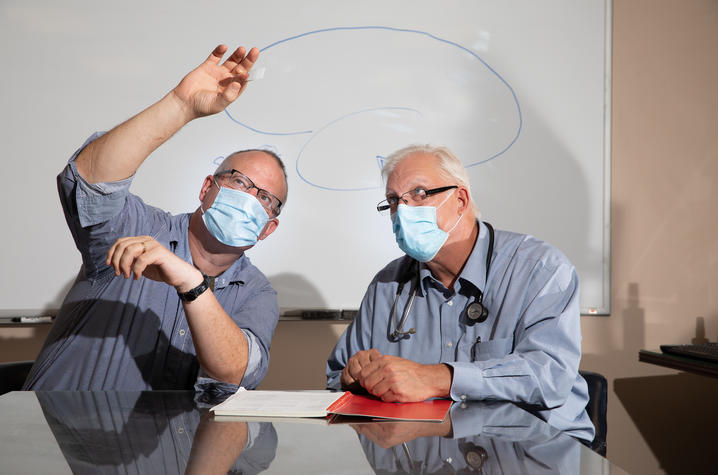
LEXINGTON, Ky. (July 30, 2020) —The COVID-19 pandemic brought many things to a screeching halt and continues to impact our daily lives. However, important research at the University of Kentucky’s Sanders-Brown Center on Aging (SBCoA) is continuing under extreme caution and deep dedication.
“It can’t wait,” said Dr. Greg Jicha, a neurologist at SBCoA.
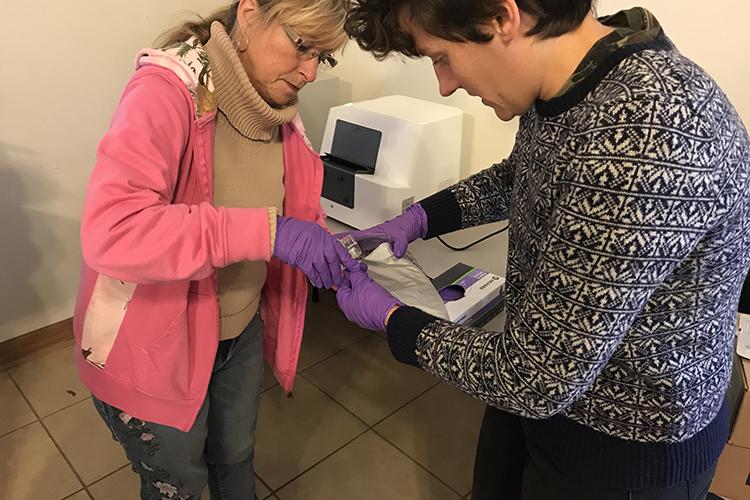
Lexington, Ky. (July 28, 2020) - Martin County drinking water regularly exceeded U.S. Environmental Protection Agency maximum contamination levels for cancer causing disinfection byproducts and coliform bacteria, according to preliminary findings of a University of Kentucky pilot study.
